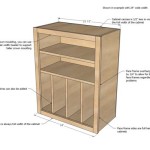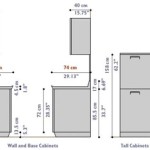Reinvigorating Your Kitchen: The Ultimate Guide to Restoring Kitchen Cabinets
Kitchen cabinets are the cornerstone of any kitchen's functionality and aesthetic appeal. Over time, however, these essential elements can succumb to wear and tear, losing their luster and diminishing the overall ambiance of the room. If you find yourself in this situation, don't despair – refinishing kitchen cabinets offers a cost-effective solution to restore their beauty and functionality.
Before embarking on this transformative journey, it's crucial to understand the fundamentals of the process. This comprehensive guide will provide you with step-by-step instructions, expert tips, and essential considerations to ensure a successful outcome.
Step 1: Preparation
Meticulous preparation is paramount to a flawless refinishing project. Begin by thoroughly cleaning the cabinets with a degreaser and sanding them lightly with 120-grit sandpaper to remove any dirt, grease, or old finishes. Protect the surrounding area with drop cloths and painter's tape.
Step 2: Choosing the Right Stain
The choice of stain is pivotal in determining the final appearance of your cabinets. Consider the existing color and the desired hue. Experiment with different stains on inconspicuous areas to find the perfect match. Opt for high-quality stains that will provide lasting color and durability.
Step 3: Applying the Stain
Using a brush or sponge, apply the stain evenly along the grain of the wood. Apply thin coats and allow each coat to dry completely before applying the next. For an even finish, consider wiping excess stain off with a clean cloth.
Step 4: Finishing and Sealing
To protect the stain and enhance its longevity, apply a clear finish. Polyurethane is a popular choice due to its durability and resistance to wear and tear. Apply several thin coats, sanding lightly between each coat to achieve a smooth surface.
Step 5: Hardware and Cleanup
Once the finish has dried, reattach the cabinet hardware. Remove any paint or stain from the hardware using a solvent cleaner. Clean the area thoroughly, removing any dust or debris.
Expert Tips:
- Test the stain in an inconspicuous area before applying it to the entire cabinet.
- Use a brush specifically designed for staining to ensure even application.
- Allow ample drying time between coats to prevent smudging or bubbling.
- Protect your hands by wearing gloves throughout the process.
- Ventilate the area well while staining and finishing to avoid inhaling fumes.
Considerations:
Before committing to refinishing your kitchen cabinets, consider the following factors:
- Time and Effort: Refinishing can be a labor-intensive project that requires patience and attention to detail.
- Budget: The cost of refinishing will vary depending on the size of the kitchen, the type of stain and finish used, and whether you hire a professional.
- Skill Level: While refinishing is generally a DIY-friendly project, it requires some woodworking skills and patience.
By following these steps and considering the factors discussed above, you can successfully refinish your kitchen cabinets and restore their beauty and functionality. Remember to approach the project with enthusiasm and a desire to transform your kitchen into a space that you love.

Cabinet Refinishing An 8 Step Guide For Pro Painters Ppc

Cabinet Refinishing Guide

How To Make Rustic Kitchen Cabinets By Refinishing Them The Best Stain Color Amanda Katherine

Refinishing Kitchen Cabinets Modern Refacing Made Easy Wisewood

The Fast Affordable Way To Upgrade Your Kitchen Cabinet Refinishing
Refinishing Kitchen Cabinets A Beautiful Mess

Staining Your Wood Cabinets Darker Young House Love

How To Refinish Cabinets Like A Pro

How To Refinish Wood Cabinets The Easy Way Love Remodeled

How To Strip And Re Stain Kitchen Cabinets Clinton Township Mi Eason Painting
Related Posts








